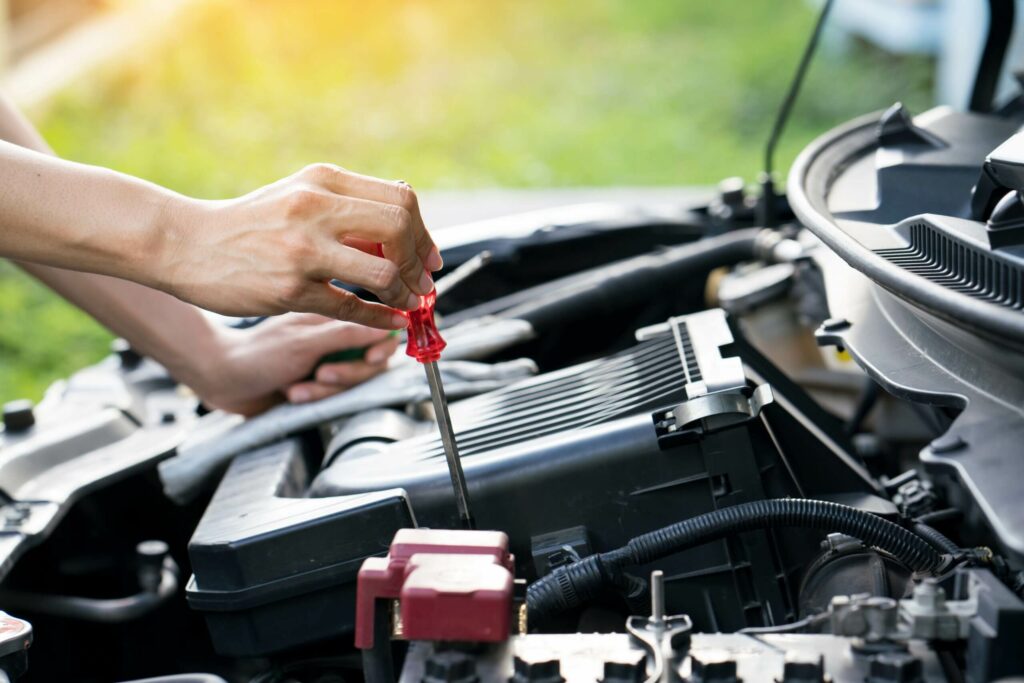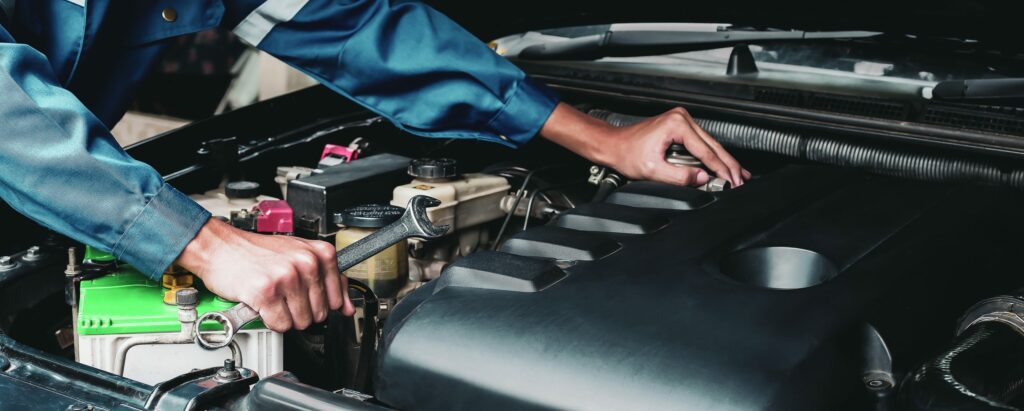
Your Car Needs a Service: Signs to Watch Out For
The well-being of our automobiles should be the number one priority for us. We trust them on the road to reach our destination safely. Hence they should be maintained properly. What makes us think that your car needs a service? There are certain signs which indicate that an automobile needs a service. Hence we should take steps to perform it well.
Signs That Your Car Needs a Service

Dashboard Warning Lights
Modern vehicles are equipped with advanced sensors that monitor various components. When something goes wrong, these sensors trigger warning lights on your car’s dashboard. Paying attention to these warning lights is essential as they can indicate potential problems. Some common warning lights include:
- Check Engine Light: This light indicates an issue with the engine or its related systems, such as the exhaust or fuel injection.
- Battery Light: If this light illuminates, it could mean a problem with the charging system, such as a faulty alternator or a weak battery.
- ABS Light: The Anti-lock Braking System (ABS) light alerts you to issues with your vehicle’s braking system, which can compromise your safety on the road.
Unusual Noises
Unfamiliar sounds coming from your car should never be ignored, as they can be early warning signs of underlying issues. Here are some common noises and what they might indicate:
- Squealing Brakes: This could suggest worn brake pads that require replacement.
- Grinding Gears: Grinding noises while shifting gears may indicate a transmission problem that needs attention.
- Persistent Knocking: A knocking sound coming from the engine could point to issues like worn-out bearings or loose components.
Handling Issues and Vibrations
These issues can impact your overall driving experience and compromise safety. Some signs to watch out for include:
- Steering Wheel Vibration: Excessive vibrations in the steering wheel could indicate problems with wheel alignment or suspension components.
- Vehicle Pulling to One Side: If your car drifts or pulls to one side, it may signify misaligned wheels or uneven tire wear.
Decreased Performance and Efficiency
If you notice a decline in your car’s performance or fuel efficiency, it’s a sign that something isn’t functioning optimally. Here are a few indicators of decreased performance:
- Sluggish Acceleration: A lack of power or delayed response when accelerating could be caused by issues with the fuel system, such as clogged injectors.
- Decreased Fuel Efficiency: If you find yourself visiting the gas station more frequently, it could indicate problems with the engine, exhaust, or fuel delivery system.
- Fluid Leaks or Unusual Odors
- Leaking fluids and strange odors can be signs of underlying problems that require immediate attention. Keep an eye out for the following:
- Fluid Leaks: If you notice any fluid puddles under your car, it could indicate leaks in the engine oil, coolant, transmission fluid, or power steering fluid. Each type of fluid has a distinct appearance and consistency.
- Unusual Odors: Strange smells inside or outside your vehicle can be a cause for concern. A burnt smell could indicate an overheating engine, while a sweet scent might suggest a coolant leak.
Importance of Regular Car Servicing
Everyone wants a better lifespan and performance of their automobile. However, only a few realize the importance of your car needs a service. Most people remember this only when their car has major breakdowns. If they realize earlier and check the health of the auto, they can prevent big issues painlessly. Professional technicians have knowledge and relevant tools, so they do a proper inspection of the condition of the automobile. Diagnosing the problem is the first and the most important step. Then they do all the necessary repairs and replacement. If you want to keep the resale value as high as possible for a long time, you should realize the importance of such servicing from time to time.
The Role of Preventive Maintenance

Preventive maintenance plays a crucial role in keeping your car in excellent condition. Regularly servicing your vehicle allows technicians to identify and address potential issues before they escalate, preventing unexpected breakdowns and costly repairs. During a service appointment, professionals conduct essential tasks such as changing the oil, inspecting filters and fluids, checking the brakes, and assessing the overall condition of vital components.
Embracing preventive maintenance not only enhances your driving experience but also provides you with peace of mind knowing that your car is in top-notch shape.
Car Mileage and Your Maintenance Schedule
More distance cannot be recorded thanks to a mileage blocker. It was designed by the manufacturers for testing so that customers could quickly confirm the operation of their automobiles. Regardless of whether your odometer detects distance in kilometers or miles, this module offers unnoticeable performance. On the highway, some people utilize the mileage blocker to stop control systems from recording mileage. Some people want to make up for prior errors, while others want to sell their cars for more money. In any case, responsible technology use is expected from everyone.
Regular Servicing is What you shouldn’t Miss
By being attentive to signs like dashboard warning lights, unusual noises, handling issues, decreased performance, fluid leaks, and odors, you can take proactive measures to address potential problems before they escalate. Don’t delay when your car needs a service; book an appointment with a qualified technician and ensure your car receives the care it needs.




